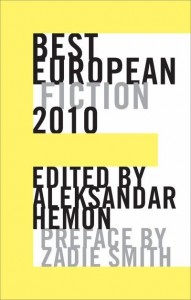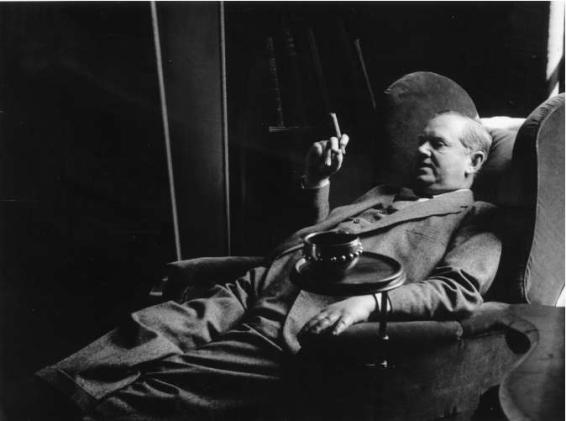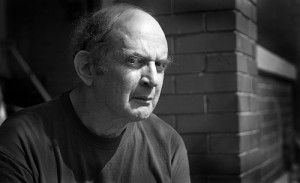1. At n+1, Benjamin Kunkel offers yet another “take” on the future of the fucking book.
2. The Sot Weed Factor and To Kill a Mockingbird both just turned 50.
3. At Open Culture, all of Tarkovsky’s films are now available for free online.
An Announcement from Maggy Poetry: Contest Deadline Extended

So, New York City, tomorrow evening is this Bastille Day Soiree, hosted by NOON and Gigantic. Reading, you’ve got Josh Cohen (Witz), Diane Williams (It Was Like My Trying to Have a Tender-Hearted Nature), and Rebecca Curtis (Twenty Grand). A dude from !!! will be DJing–those guys have such branchy legs. Custom Witz and Twenty Grand cocktails. Wednesday, 7PM, The Library Bar at Gild Hall. Holy shit! I know. I know. I’ll just see you there. Text me.
5 back of the turkey thaw gloves
1. Reading includes Brett Elizabeth Jenkins (poetry here) and Christopher Newgent (genius) in Indianapolis. Friday, July 23rd, 7:30, Calvin Fletcher Coffee Co. While In Indy, you could drop by Kurt Vonnegut’s house (his baby hand print in the concrete of the steps) or not. And so it goes.
17. This new Adam Langer book/satire (review, review) looks pretty dern interesting and getting buzz for shots at mainstream publishers.
3. Does anyone else read two books at once? Has worked for me lately, and glows best if the two books are vastly different (i.e. I am now reading David Shields death book and Harrison’s desperate prose poem letters to Yesenin). I weave them, usually chapter/chapter and it stays fresh and maybe the compliment/contrast in my brain and also so far the Harrison book is kicking Mr. Shield’s ass.
23. Fuck twitter.
At BOMBLOG, a conversation between Shane Jones and me, with an intro by Tom Roberge, Penguin’s editor for Light Boxes.
For What It’s Worth
 There were 127 respondents to my survey about publishing, but the free account at Survey Monkey limits results to 100 people. All the other responses are sitting behind some Internet wall, trying to get me to spend $19.95.
There were 127 respondents to my survey about publishing, but the free account at Survey Monkey limits results to 100 people. All the other responses are sitting behind some Internet wall, trying to get me to spend $19.95.
So, below, are the responses I got for free. A very hearty thank you to everyone who participated. I won’t argue that this survey was perfectly-composed, but it was at least anecdotally helpful for me, and thought provoking. I assume I’ll be honing these questions over time and coming back with more questions.
Translation, Representation, and my Confusion
 In this week’s NYRB, Tim Parks reviewed Best European Fiction 2010, an anthology published by Dalkey, edited and with an introduction by Aleksandar Hemon and a forward by Zadie Smith. Parks discusses the demographic of contributors, mentioning that Europe isn’t fully represented in this anthology of “best European” writing. Heavy-hitting writer countries like Germany, Sweden, Greece, and the Czech Republic are absent. So I wonder: Would an anthology of “Best American” writing need contributors from every state? I’d examine my copy of Best American, but I don’t own it. Someone else, please, do.
In this week’s NYRB, Tim Parks reviewed Best European Fiction 2010, an anthology published by Dalkey, edited and with an introduction by Aleksandar Hemon and a forward by Zadie Smith. Parks discusses the demographic of contributors, mentioning that Europe isn’t fully represented in this anthology of “best European” writing. Heavy-hitting writer countries like Germany, Sweden, Greece, and the Czech Republic are absent. So I wonder: Would an anthology of “Best American” writing need contributors from every state? I’d examine my copy of Best American, but I don’t own it. Someone else, please, do.
Parks goes on to say:
“Represented” is hardly the right word. Many of the stories do not take place in the writers’ native countries: the pieces from Castilian Spain and Serbia take place in France, the French story in Japan, the stories from Poland and Macedonia in Austria, the story from Croatia in Hungary, the story from England in France; most curiously, the story translated from Gaelic tells of an old blind clairvoyant in rural Bolivia. / I have no problem with this. All the contributions are interesting and some impressive. That is enough for me. But it does make one wonder whether we are learning much about other cultures from this venture, whether it is true, as Hemon claims, that “ceaseless” and “immediate” translation of literature from abroad is a “profound, non-negotiable need.”
July 12th, 2010 / 11:03 am
On “A Handful of Dust”

Evelyn Waugh finished A Handful of Dust by practically stapling his short story “The Man Who Liked Dickens” at the end of the manuscript, lending its somewhat disjointed and unexpected ending, in which our hero is kidnapped in Brazil and forced to read Charles Dickens to his captor for the rest of his life — a tight smirk, I suppose. The novel was first serialized in Harper’s Bazaar (then with literature content), who asked Waugh to write an alternative ending which skipped the ill-fated trip to Brazil. In this ending, often included in the appendix, our hero, having waived a divorce, simply comes home to his adulterous wife under the same charade from which he had tried to escape. In the closing scene, he keeps on dozing off in the car on the way back home. Waugh’s remark, I think, is that both fates — however exotic or prosaic — are a kind of inextricable death, one in which we are all destined towards. A passport is a chapbook offering self-publishings of where we’ve been, which is short for who we think we are. The best amnesty is at home.



